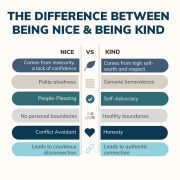Developing A Service Culture – The Power of Servant Leadership
In 1938, while on ski trip in Switzerland, Nicholas Winton took a side trip to help the children of refugees. Nazi Germany had begun the Kristallnacht, a violent attack on Jews in Germany and Austria, and it had just reached Czechoslovakia. Winton set up a rescue operation for the children, filling out the required paperwork and raising money to fund foster homes for 669 children in Sweden and Great Britain. He managed to send all 669 of them away from Czechoslovakia on trains before the Nazis closed down the borders.
Winton told no one that he did this, not even his wife.
A person’s true wealth is what we give to others. The wealth of a culture is no different. A great organization is one that makes the world a better place because it exists, not simply because it outperforms the market by a certain percentage over a certain period of time. A great culture is defined by its capacity to bring value to all its stakeholders.
A culture of service is not created overnight. If you change yourself, you have already changed your workplace, so be happy with that until you become more skillful at manifesting service leadership and modeling it for others. Changing yourself is the first step to building a service culture.
- A service culture starts with small, anonymous caring actions. Remembering to smile and say “please” and “thank you,” opening doors for people, offering encouragement instead of criticism, and practicing patience go a long way to inspire service around you. When it comes to building a service culture, the little things are the big things. While anonymously saving children’s lives is inspiring and noble, don’t neglect the small acts of caring.
- Make service a decision. Service is an act, a verb, not a feeling, or a noun. Once you decide to serve, the quality of your life immediately begins to improve. Decide to be a giver rather than a taker, to choose service over self-interest. Caring about others is a decision.
- Don’t mistake serving with pleasing. Serving is a commitment to identify and meet the needs of the people who depend on you. Pleasing attempts to meet the wants of others so they will be happy. There is a world of difference between the two. Pleasing breeds resentment, results in burnout, and turns you into a slave. Serving leads to freedom, self-respect, and wellbeing within you and around you.
- Always do more than you get paid for. I learned this from my parents. Go the extra mile with a customer or with anyone that depends on you. In a world where we have come to expect a low standard of service, it’s easy to “wow” people by over-delivering on your promises. But the reward in extending yourself without pay is the inner satisfaction that comes by giving more than you expect back.
- Like anything else involving effort, learning to serve takes practice. We have to get into the habit of standing with others in their challenges. Sometimes it is a simple matter that does not take us far out of our way – speaking a kind word to someone who is down, or spending a Saturday morning volunteering for a cause you believe in. At other times, helping involves some real sacrifice. “A bone to the dog is not charity,” Jack London observed. “Charity is the bone shared with the dog, when you are just as hungry as the dog.” If we practice with small opportunities to help others, we’ll be in shape for times requiring real, hard sacrifices.
- Disconnect to connect. In the “tyranny of technology,” the more connected we are electronically, the less connected we seem to be personally. E-mails and text messages are great for sending information, but generally not good for making connections. Electronic communication will never compensate for a failure to get out from behind your desk and develop face-to-face relationships. When you can’t meet with people directly, then pick up the phone.
- Listen before you speak. “A closed mouth gathers no feet,” said a participant in one of my workshops. When you are tempted to tell someone what to do, instead start with the question, “What do you think you (or we) should do now?”
- Set difficult – but not impossible – standards for yourself and others. Pride and self-respect don’t come from doing something easy. Serving does not mean taking the path of least resistance. Sometimes the best way to help people is to hold them accountable and accept no excuses.
- Like all efforts, keep a commitment to service in balance. If we spend all of our time trying to help everyone, we end up neglecting our accountability to ourselves, our families, and to those who matter most in our lives. Like all virtues, service must be tempered and informed by a good measure of conscience.
Everywhere I go I meet people who, in one way or another, seize opportunities to do good for their fellow travelers. It’s truly inspiring to be around people who are committed to service. These are the true leaders in our lives, with or without a title. And like Nicholas Winton, they don’t do it for a reward or for recognition, but because it is the right thing to do. Anonymous service coming from a place of contentment has its own reward that the world cannot give.
How are you creating a service culture where you live and work?









